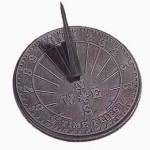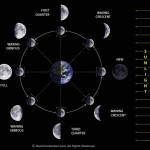(I was asked to write a true Urban Fantasy story. This might border more on magical realism, but here it is…)
I confess that I don’t put much stock in ghost stories or psychic events, but on the other hand, I can’t tell someone that they did not actually experience what they remember experiencing. After all, I’m not the one who was there. With that in mind, let me tell you about a wristwatch of mine that seemed to know more about how to live life than I did.
It was an unassuming little thing, an analog wristwatch with a small digital inset. I’d had it for years, and the gold-plating on the wristband had faded to a dull yellow. I would have replaced it long before, except for the fact that it was thin and lightweight, and the trend for men’s wristwatches had moved towards bulky anchors. Those factors combined to make the watch literally irreplaceable. So I was that much more annoyed when it started acting funny.
You see, sometimes, it would simply stop. The hands would freeze in place, and the digital portion would go blank.
My first thought was that the battery was dead, but before I could take it down to Walmart to get a fresh battery installed, it started working again. So I reset the time and continued on my way. But then it would stop again, and after a day or so, it would restart. After a few months of this I began to notice a pattern.
It only stopped on the weekends.
Being something of a scientist, I began to sniff around for rational explanations. Texas is hot from April to October, and I was frequently outside in the yard working up a sweat on the weekends. Sometimes I was mowing the lawn with plenty of vibrations coming up through my hands from the mower. That had to be it, right? Or could it be the heat and humidity? That made sense. So I stopped wearing it while doing yardwork, but even then, it would still sometimes stop on the weekend.
Well, that wasn’t not so bad. The weekend is a time to relax. As my wife put it, I don’t really need to worry about time on the weekends. She suggested that perhaps my watch was trying to tell me not to worry about the time when I should be relaxing and enjoying life instead.
While I admitted that it was indeed a good time to be relaxing, I wasn’t ready to buy into any magical watch theories. I replaced the battery, but it still kept quitting on the occasional weekend. I took it to a jeweler to be repaired, and he suggested that the spring holding the battery in place was simply loose and needed to be tightened. That sounded like a good rational explanation, so I had him do that.
It didn’t make a difference. It quit on me the very next weekend, and what’s more, it started quitting on me when I went camping. I was doing two or three weekend campouts a year in Central Texas back then, and sure enough, within an hour of arriving at the campsite, the watch would quit on me. That was fine. It was a relaxing campout. I shouldn’t be worried about time anyway, so I left it in the car. Invariably, it would start working again on the drive home. Still, my rational mind was satisfied with the heat and humidity explanation.
Then it went missing.
I was on a business trip to SIGGraph. I was working at Autodesk at the time, and every other year I went to this conference that was half technical folks and half graphical artists. I could attend a presentation on vector compression and walk across the hall to see interactive, three-dimensional art. For someone like me who was equal parts math-geek and visual artist, it should have been more of a vacation than a business trip. But this time, early on the first day, I noticed that my watch was no longer on my wrist.
I had been checking email on my laptop earlier in the day, and I tend to take my watch off when I’m typing. To keep track of it, I would usually set it on the open laptop so that I would be forced to put it back on before closing up. Maybe I did something different that time. Maybe I set it on the table. Maybe I tried to put it in a pocket and missed. Or maybe the watch just made a jump for it.
I stopped by the show’s administrative office and registered it with their lost and found, but then I put it out of my mind and stopped worrying about the time. I stayed out late. I ate dinner with random people I had met at the conference. I ran into one of our executives and invited him to join me and some of my coworkers for lunch. I wandered the halls and found parts of the show I had never known existed. Sure, I missed a few presentations that I had circled in the program book, but I enjoyed that show more than any other SIGGraph before or since.
I stopped by the admin office each morning, but they never had the watch, nor did they ever call. I checked out of my hotel the last day, made one last sweep through the trade show floor, and finally started thinking about time again. I found myself looking at the clocks in the building, aware that I would have to leave soon to catch my flight home. Then, as my last stop before heading out to the taxi stands, I went to the admin office one last time. Sure enough, someone had turned in my watch mere moments before. It was still working, showing me the correct date and time. It seemed like it was taunting me for not believing in it.
I was a lot more forgiving of its idiosyncrasies after that. When it stopped on the weekend or on a camping trip, I merely set it aside for a few days and picked it up when it was time to start moving again. We had reached an understanding of sorts, and I was happy to let that go on for another year or so.
Then my dad got sick. It was cancer. He battled it out for two years, and I made a few trips out to visit him in the dry Arizona desert, sometimes even stopping off for a day going to or from my job in California. Sure enough, on every visit, my watch stopped working. I didn’t worry about the time. Instead I savored it. Those moments were both fleeting and priceless.
Eventually, my father lost his battle with cancer. I was back home when it happened. It was a Monday afternoon in August. I sat down that evening at my computer, laid my watch across the top of the keyboard, and wrote a blog post that eventually became his eulogy. The watch stopped fifteen minutes after I posted that entry.
The watch never started again. It’s been almost eight years, and it still sits frozen on my desk. I have bought other watches since then, but I never made another attempt to revive that one.
So that’s the true story of my magical watch. I remain a scientist at heart, but I can offer no rational explanation for the many coincidences I had with that watch. Instead, I am left only with the lesson it taught me. Don’t worry about the time. Treasure it.

 I ran into this question in an SF/F group: How do you create an alternate timekeeping and calendar system? I found it interesting because it’s not so much about comparing some local calendar to the one we use here on Earth, but about creating one from scratch. How do we do that?
I ran into this question in an SF/F group: How do you create an alternate timekeeping and calendar system? I found it interesting because it’s not so much about comparing some local calendar to the one we use here on Earth, but about creating one from scratch. How do we do that? But what about dividing up the day? The easiest division is day vs. night, but dividing that up into smaller units is somewhat arbitrary. We got out 24-hour clock by an early sundial method of dividing up the day into ten hours of sunlight, plus an hour of twilight at each end. This was mirrored over to night through the tracking of certain stars.
But what about dividing up the day? The easiest division is day vs. night, but dividing that up into smaller units is somewhat arbitrary. We got out 24-hour clock by an early sundial method of dividing up the day into ten hours of sunlight, plus an hour of twilight at each end. This was mirrored over to night through the tracking of certain stars. The origin of our month comes from the more primitive cultures that tracked the passage time by the phases of the moon. This is believed to go back to stone age, but depending on how you want to observe it, there are several different ways to measure the moon’s orbit. Do you go by the phases, or do you see when it returns to the constellation of the squid? And what if you have two moons? Does one take precedence over the other? Or do you derive some time unit based on when the closer one eclipses the outer one? If there are three or more, do you look for some kind of regular alignment in their orbital rhythms? If there is no moon, there will probably be at least some demarcations of the seasons via the solstices and equinoxes.
The origin of our month comes from the more primitive cultures that tracked the passage time by the phases of the moon. This is believed to go back to stone age, but depending on how you want to observe it, there are several different ways to measure the moon’s orbit. Do you go by the phases, or do you see when it returns to the constellation of the squid? And what if you have two moons? Does one take precedence over the other? Or do you derive some time unit based on when the closer one eclipses the outer one? If there are three or more, do you look for some kind of regular alignment in their orbital rhythms? If there is no moon, there will probably be at least some demarcations of the seasons via the solstices and equinoxes.